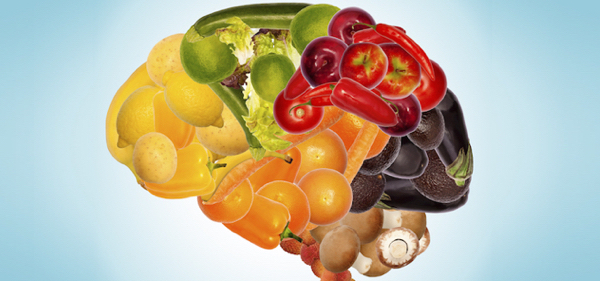As we age, its common to worry about impaired memory function and many of us look to brain exercises to help. But what if it’s your diet that’s really the problem?
In the quest to find a cure for Alzheimer’s, contributing factors to the disease are often uncovered. A new study has found that those with the healthiest diets were 24 per cent less likely to have cognitive decline than those with the poorest diets.
Researchers from McMaster University in Canada examined the diets of 27,000 people from over 40 countries. All of the subjects were aged over 55, had diabetes or a history of stroke, heart diseases or diseased arteries and were followed for five years.
Their memory skills were tested at the start of the study, after two years and again after five years. They were also given a score based on their dietary intake, with a higher score allocated to those who ate healthy food such as nuts, fruits, vegetables and proteins. Those with a higher score were found to have shown a slower rate of cognitive decline.
So, if these are the foods that are good for your memory function, which foods should you be avoiding?
Trans fatty acids – found in processed foods, margarines, salad oils, baked goods, potato chips and lollies, have been shown to negatively affect cognitive function. A study from 2011 found that those who consume diets high in trans fatty acids had less favourable cognitive function and had lower scores on cognitive and memory tests.
Saturated fats – found in the fat on meat, chicken skin and full fat dairy products. Around 6000 women aged over 65 took part in three cognitive tests over a period of four years. The study, which concluded in 2012, found that those who consumed the highest amount of saturated fats had worse overall cognition and memory compared to those who had the lowest amounts. By comparison, those who had more monounsaturated fats, found in avocados, olive oil and peanut butter, had significantly better scores.
Sugars, syrups and simple carbohydrates – all of these increase the risk of insulin resistance, obesity and metabolic syndrome. Cane sugar and corn syrup are often added to soft drinks, condiments and even baby foods as an inexpensive sweetener. All these foods are also high on the glycemic index (GI) and break down quickly, rapidly releasing glucose into the blood, resulting in insulin resistance. Insulin controls blood sugar and regulates synaptic function, where the brain processes thoughts and emotions, which affect memory and learning processes.

